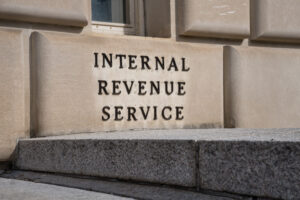In communities across America, parents are shocked to see the sexually explicit content in the books and curricula being introduced into their children’s classrooms. Yet time and again, when those parents ask local school boards to adopt age-appropriate standards— regarding sexually explicit material—they are smeared with the label of “book banners.” That smear must be rejected. Parents have both the right and the responsibility to demand that schools protect children’s innocence and focus on sound academics, and school boards have the legal right and responsibility to deliver such standards.
For parents who want to go deeper, our White Paper on Standards for Sexually Explicit Content in Schools offers detailed guidance on how districts can establish clear, lawful, and age-appropriate policies that protect children and support educators.
Read it here ➤ https://pafamily.org/standards-for-explicit-sexual-content-in-schools/.
The false narrative: “book banning” as a weapon
Judge Cheryl Lynn Allen lays out the problem plainly in her June 2025 op-ed “Media Smears and the Real Fight for Our Kids’ Minds.” She writes:
“When communities push back against such content, they’re falsely accused of ‘banning books.’ … Refusing to stock a book in a school library — especially one that includes sexually explicit scenes — is not the same as banning it.”
Allen reminds readers that school boards have the legal authority and moral duty to set appropriate boundaries, not to allow any content, so long as it isn’t technically illegal. The smear campaign—portraying reasonable filtering and parental concern as extremism—is a deliberate strategy to intimidate parents and board members, and to silence debate.
That rhetorical gaslighting must not succeed.
Why this fight matters: protecting children, safeguarding education
1. Preserving childhood innocence
No one expects a public school to assign material showing people engaged in sex acts or explicit written descriptions of people engaging in sex acts. Allowing books full of explicit sexual content into K-12 libraries or curriculum effectively forces children into exposure for which they are not developmentally ready to handle or process.
2. Maintaining focus on academics
When explicit content fills library shelves or instructional time, it pushes out higher-value alternatives: classic literature, history, civics, and science. Every provocative selection displaces something else that could uplift rather than exploit. Those introducing and allowing this content are causing the controversy, not the responsible parents and board members, who are rightly speaking up.
3. Avoiding liability and conflict
As Judge Allen notes, the absence of clear policies invites legal threats. Librarians or principals forced to decide book removals on the fly risk being accused of viewpoint discrimination. Written standards — differentiated by elementary, middle, and high school — protect educators, educational institutions, and give parents a voice.
4. Resisting ideological indoctrination in the classroom
A national Ipsos poll found that 76 percent of Americans—and 77 percent of parents—agree: “classrooms should be places for learning, not political battlegrounds.” In short: parents want what schools should always provide—solid, age-appropriate instruction—not coercion of children into ideological agendas.
From principles to the ballot box: why school board elections matter
The people who control your district’s library and curriculum policies are your local school board members. It is important to remind them to steward that responsibility well. Avoiding any written age-appropriate standards in policy isn’t neutral; it instead leaves the low bar of criminal law as the only real standard. In other words, the only standard becomes “as long as it does not violate criminal law to give particular sexually-explicit material to a child, then it belongs in the minor’s school library.” That is a very bad standard. Just because some parents may desire their own kids to view sexually explicit books, that does not mean they get to impose the lowest-common-denominator standards on their public school library or the rest of the children in the school.
- When parents show up and respectfully speak, boards often listen. But if pro-family voters stay home, boards tilt toward radical agendas and ideologies.
- Candidates must be vetted: Will they defend the right of parents to weigh in on age standards? Will they refuse to be intimidated and bullied by “book banning” smears?
- Casting your vote for a candidate who respects families is not small. It sets the tone for whether your schools will cede moral authority to ideologues or return it to the community and a focus on academic learning.
As Allen warned, “This rhetorical gaslighting is meant to … shift the Overton Window of what we consider acceptable in children’s education. It’s working—unless we push back.”
As Allen pointed out, the facts are that parents and school boards are not erasing ideas or censoring history. “They are drawing lines where lines need to be drawn, with public input. In an age where radical ideologues want to blur every boundary related to sex, we need more, not fewer, people willing to stand up and say, “leave the children alone.”
What the data says
Parents Defending Education (PDE) released polling on key issues facing schools in January of 2025, surveying 1,000 parents with children 18 or younger between Dec. 12–18, 2024.
One finding stood out:
90% of parents agree that focusing on core subject areas—math, reading, writing, science, and social studies—would improve the quality of public education.
That consensus spans the political spectrum:
- 92% of Republican parents, 88% of independents, and 91% of Democrats agree.
- 87% of white parents, 91% of black parents, 100% of Asian parents, and 95% of Hispanic parents agree.
Nicole Neily, President of Parents Defending Education, summarized the message:
“These results highlight that parents are dissatisfied with many elements of the modern American education system—and that there is broad-based consensus that it’s time for schools to get back to basics.”
The takeaway is clear: parents across every background want less politics and more teaching. They’re united in calling for schools to return to the fundamentals of education—academics, not radical ideology and coerced activism.
Calling all pro-family voters: a three-step action plan
- Research your local school board candidates.
- Look for evidence that they support parent input and age-appropriate standards.
- Avoid candidates who reflexively adopt “book banning” smears or refuse to draw real lines.
- Use candidate forums, questionnaires, or direct questions at meetings.
- Show up & vote.
- Local races often decide big issues. A few votes can tip a board majority.
- Municipal elections, school board, or off-cycle elections are low turnout — your vote carries disproportionate weight. And this year it matters more than ever.
- Stay involved before & after election day.
- Attend board meetings. Watch the policies they adopt (library, curriculum, opt-out). Ask your kids about what they’re learning in class.
- Respectfully speak up when they propose content or curricula that violate children’s age-appropriateness. Write letters to your editor.
- Encourage written, transparent policies that require parental review and input.
Raising objections to explicit books in school should not be controversial. It is exercising the parental right to protect your child, preserve educational integrity, and push schools back to their core mission: teaching reading, writing, history, science—not shock content. Those who want sexually explicit books in schools are distracting from the mission of schools and are more concerned with waging their woke-culture war than with the mission of educating kids.
As Judge Allen puts it: “Age-appropriate standards are not censorship. They are common sense, good education policy, and good parenting.”
We must reject the false narrative. We must demand accountability of our school districts. And we must back that demand with votes—for candidates who will stand firm for children, not agendas.
Don’t sit on the sidelines. Find your local school board election. Research the candidates now. Pledge to vote. And make sure your voice is heard—because your children’s future depends on it.
To help you prepare for Election Day and learn where candidates stand on issues impacting your family, visit https://pafamily.org/choosewell.
You’ll find practical tools, voter guides, and church resources to help you pray, discern, and Choose Well this November.

Related Blogs: Retention Election post, & A Biblical Response to Gender Ideology, & No More Fear: IRS Confirms Churches Can Speak on Elections





You should encourage your members to run for school board. Obviously too late now for 2025 but plenty of time to prepare for 2027. In the meantime, however, there are board vacancies from time to time and your PA Family members should apply.
The only way you are going to change a school board is to get ON that school board!